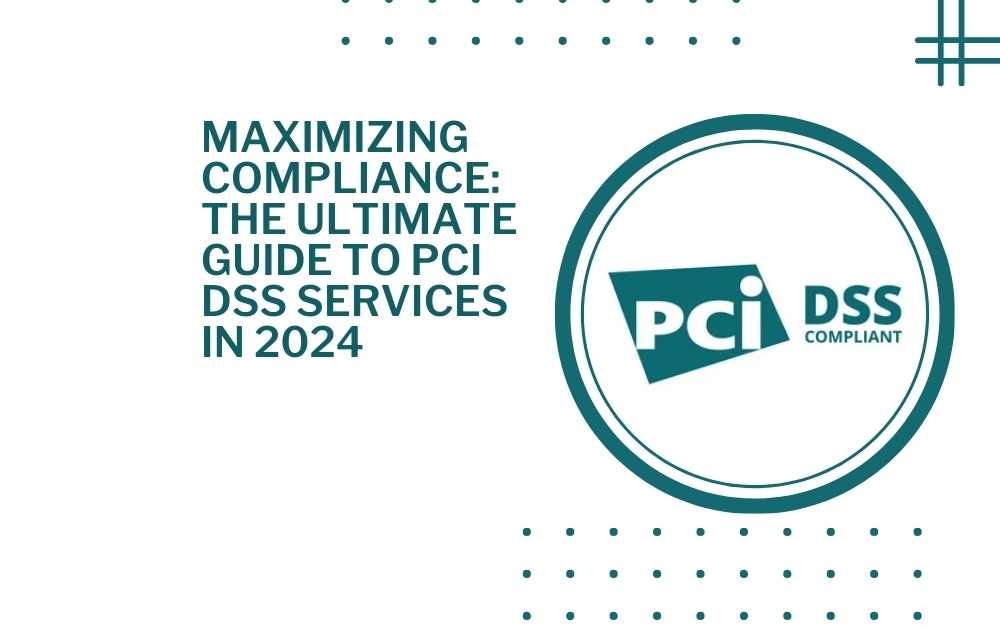Safeguarding sensitive data is paramount for businesses. With cyber threats on the rise, organizations must adhere to strict regulations to ensure the security of customer information. One such regulation is the Payment Card Industry Data Security Standard (PCI DSS).
Understanding PCI DSS
What is PCI DSS?
PCI DSS Services, short for Payment Card Industry Data Security Standard, is a set of security standards designed to ensure that all companies that accept, process, store, or transmit credit card information maintain a secure environment.
Why is PCI DSS Important?
Compliance with PCI DSS is crucial for several reasons:
- Protecting Customer Data: Compliance helps prevent data breaches and protects sensitive customer information such as credit card numbers, reducing the risk of identity theft and fraud.
- Avoiding Penalties: Non-compliance can result in hefty fines, legal action, and damage to a company’s reputation, leading to loss of customers and revenue.
- Building Trust: Demonstrating compliance with PCI DSS standards builds trust with customers, showing them that their data is safe with your business.
Challenges of PCI DSS Compliance
Despite its importance, achieving and maintaining PCI DSS compliance can be challenging for businesses. Some common challenges include:
- Complexity: The PCI DSS standards are comprehensive and can be complex to interpret and implement, especially for small businesses with limited resources.
- Cost: Compliance efforts often require significant financial investment in technology, training, and resources.
- Continuous Monitoring: Compliance is not a one-time task but an ongoing process that requires regular monitoring and updates to security measures.
The Role of PCI DSS Services
To help businesses navigate the complexities of PCI DSS compliance, various PCI DSS service providers offer a range of services tailored to their needs. These services can include:
1. Compliance Assessments
PCI DSS service providers conduct thorough assessments of a company’s systems, processes, and controls to determine their compliance status. This includes:
- Gap Analysis: Identifying areas where the organization falls short of compliance requirements.
- Risk Assessment: Evaluating potential security risks and vulnerabilities.
- Remediation Planning: Developing a plan to address any issues and achieve compliance.
2. Security Solutions
Many PCI DSS service providers offer security solutions designed to help businesses strengthen their security posture and meet compliance requirements. These solutions may include:
- Firewalls and Intrusion Detection Systems: Implementing robust network security measures to protect against unauthorized access.
- Encryption: Encrypting sensitive data to prevent unauthorized disclosure or tampering.
- Secure Payment Gateways: Using secure payment processing solutions that comply with PCI DSS standards.
3. Training and Education
Education and training are essential components of PCI DSS compliance. Service providers offer training programs and resources to help businesses understand the requirements of PCI DSS and train their staff on best practices for maintaining compliance.
4. Compliance Management Tools
To streamline compliance efforts, many PCI DSS service providers offer compliance management tools that help businesses track their progress, manage documentation, and automate compliance processes.
Choosing the Right PCI DSS Service Provider
With a multitude of PCI DSS service providers in the market, choosing the right one for your business can be overwhelming. Here are some factors to consider:
- Expertise and Experience: Look for providers with a proven track record of helping businesses achieve and maintain PCI DSS compliance.
- Customization: Choose a provider that offers tailored solutions based on your business size, industry, and specific compliance needs.
- Cost-Effectiveness: Consider the cost of services and weigh them against the value they provide in terms of compliance and security.
- Support and Customer Service: Ensure the provider offers reliable support and responsive customer service to assist you throughout the compliance process.
Conclusion
PCI DSS compliance is a critical aspect of safeguarding customer data and maintaining trust in today’s digital marketplace. By partnering with the right PCI DSS service provider and implementing robust security measures, businesses can maximize compliance and protect sensitive information from cyber threats. Remember, compliance is not just a requirement; it’s a commitment to ensuring the security and integrity of your customers’ data.
Note :- Read more related blogs at www.xgenblogs.com.au
